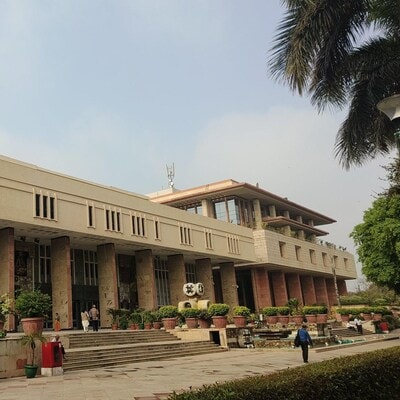Delhi HC says ICAI allowed to issue orders against Big Four affiliates
Delhi High Court (Photo: Twitter)
The Delhi High Court has said that the Institute of the Chartered Accountants of India (ICAI) is “fully empowered” to act against the affiliates of the Big Four firms. In a July 3 order, it also lifted the stay issued against the ICAI orders earlier.
The court also said that the firms, along with the partners, are also liable to reply to the ICAI notices.
This comes months after the disciplinary committee of the ICAI issued a series of orders against domestic affiliates of the Big Four firms and some of their former partners under the Chartered Accountants (CA) Rules 2007 and the CA Act. In the order, the body had also imposed a monetary penalty, along with disciplinary action.
Delhi High Court granted a stay on these orders. Later, nine partners of these firms filed writ petitions saying that no violation of the CA Act was taking place and thus none of them was responsible for answering the orders.
On July 3, the court said these petitions were not tenable and lifted its earlier stay orders.
However, the court has also directed the ICAI to come up with rules for these global firms to operate in India. It said that these companies bring “global best practices” with “immense opportunities for youngsters”.
“Thus, the provisions relating to licensing agreements, brand usage etc., also need to be looked into,” it said.
Earlier this year, ICAI president Ranjeet Kumar Agarwal told Business Standard that the global networking guidelines are being worked upon and will be released soon. Recently, ICAI also met officials from the Ministry of Corporate Affairs regarding this.
The bone of contention is that accounting rules in India do not allow foreign accounting companies to audit domestic businesses. ICAI is of the view that the affiliates of the Big Four have access to common resources, methodology, knowledge and expertise of their global businesses, violating the rules.
These affiliates, on the other hand, continue to maintain that they function in India as domestic firms with 100 per cent Indian employees.
First Published: Jul 06 2024 | 8:16 AM IST
